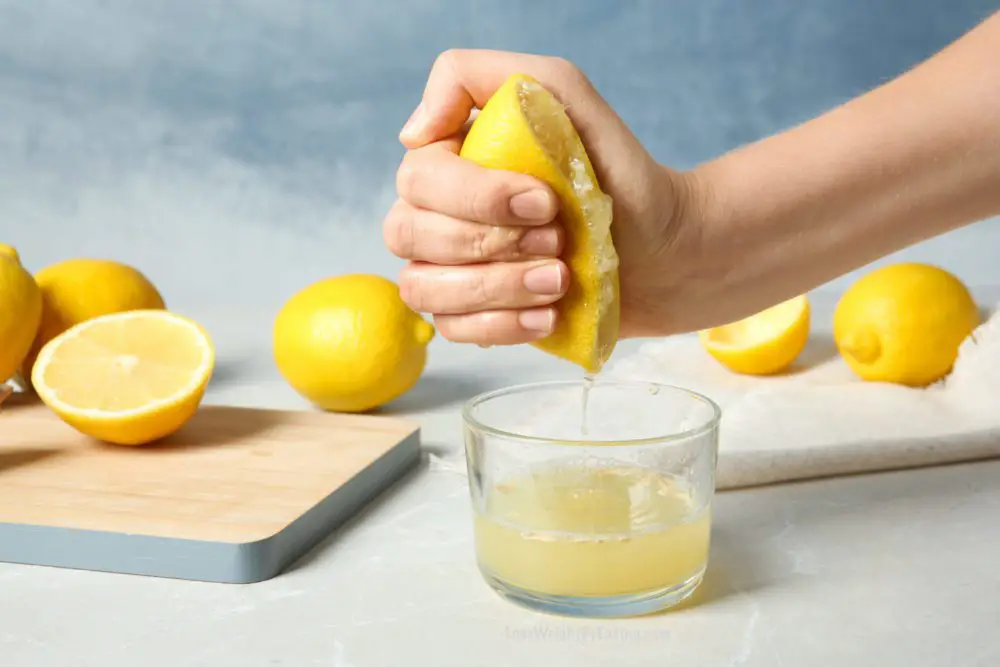Dealing with greasy hair can be a frustrating experience, as it often leaves your locks looking dull, limp, and far from their best. While commercial hair products are widely available, many of them contain harsh chemicals that can strip the hair of its natural oils, leading to further oil production and an ongoing cycle of greasiness. If you’re seeking a more natural approach to combat greasy hair, you’re in luck. There are several effective remedies using readily available ingredients that can help restore balance to your scalp and regulate oil production, leaving your hair feeling refreshed and vibrant. In this guide, we will explore a range of natural remedies and provide step-by-step instructions on how to use them. By incorporating these remedies into your hair care routine, you can achieve a healthier, less greasy mane without resorting to harsh chemicals or expensive treatments. Let’s dive into the world of natural solutions for greasy hair and discover the power of nature’s remedies.
Apple Cider Vinegar (ACV) Rinse

One effective natural remedy for greasy hair is the use of an apple cider vinegar (ACV) rinse. ACV helps balance the pH level of your scalp, reduces excess oil, and adds shine to your hair. Here’s how to use it:
- Mix 1 part apple cider vinegar with 2 parts water. For example, if you use 1 cup of ACV, dilute it with 2 cups of water.
- After shampooing your hair, pour the ACV mixture onto your scalp and hair. Be careful to avoid contact with your eyes.
- Gently massage the mixture into your scalp for a few minutes to ensure it reaches all areas.
- Allow the mixture to sit on your hair for a couple of minutes to work its magic.
- Thoroughly rinse your hair with water until the vinegar smell dissipates.
- You can follow up with a light conditioner on the ends of your hair if needed, but avoid applying it to the roots.
- Repeat this ACV rinse once or twice a week, depending on the level of oiliness you’re experiencing.
By incorporating this ACV rinse into your hair care routine, you can help regulate sebum production, remove excess oil, and restore balance to your greasy hair.
Lemon Juice

Another natural remedy to combat greasy hair is lemon juice. The acidic properties of lemon juice help remove excess oil and clarify the scalp. Follow these steps to use lemon juice for your greasy hair:
- Squeeze the juice of 1 or 2 lemons into a cup of water. Adjust the quantity based on the length and thickness of your hair.
- After shampooing your hair, pour the lemon juice and water mixture over your scalp and hair. Ensure it reaches all areas.
- Gently massage the mixture into your scalp for a few minutes to allow the lemon juice to penetrate and absorb the oil.
- Leave the lemon juice solution on your hair for about 2-3 minutes to work its magic.
- Rinse your hair thoroughly with water to remove all traces of lemon juice. Make sure to rinse well, as leaving lemon juice on the hair can cause dryness if exposed to sunlight.
- You can follow up with a light conditioner on the ends of your hair if needed, but avoid applying it to the roots.
- Repeat this lemon juice treatment once or twice a week, depending on your hair’s oiliness level.
Using lemon juice can help control oil production, add shine to your hair, and leave your scalp feeling refreshed. However, it’s important to note that lemon juice may cause dryness in some individuals, so monitor your hair’s response and adjust the frequency of use accordingly.
Aloe Vera Gel

Aloe vera gel is not only known for its soothing properties but also its ability to control excess oil and nourish the scalp. Follow these steps to use aloe vera gel as a natural remedy for greasy hair:
- Extract fresh aloe vera gel from an aloe vera leaf by cutting it open and scooping out the gel. Alternatively, you can use store-bought aloe vera gel, ensuring it is pure and free from additives.
- After shampooing your hair, apply the aloe vera gel directly to your scalp and hair. Start from the roots and work your way to the ends, making sure to cover all areas.
- Gently massage the gel into your scalp for a few minutes to promote blood circulation and allow the gel to penetrate the hair follicles.
- Leave the aloe vera gel on your hair for 10 to 15 minutes to allow its beneficial properties to work.
- Rinse your hair thoroughly with water to remove the gel completely. Ensure there is no residue left behind.
- You can follow up with a light conditioner on the ends of your hair if needed, but avoid applying it to the roots.
- Repeat this aloe vera gel treatment once a week to regulate oil production and maintain a healthy scalp.
Aloe vera gel not only helps control excess oil but also provides moisture to your hair, leaving it nourished and manageable. Regular use of aloe vera gel can help balance your scalp’s natural oil production, resulting in less greasy hair over time.
Tea Tree Oil

Tea tree oil is known for its antibacterial and antifungal properties, making it an excellent natural remedy for greasy hair caused by excess sebum and scalp issues. Here’s how you can incorporate tea tree oil into your hair care routine:
- Mix a few drops of tea tree oil with your regular shampoo. Start with 2-3 drops and adjust the amount based on your hair length and shampoo quantity. Avoid using undiluted tea tree oil directly on your scalp.
- Wet your hair thoroughly and apply the tea tree oil-infused shampoo to your scalp.
- Massage the shampoo into your scalp, focusing on the roots and areas prone to oiliness. Allow the tea tree oil to work its magic for a few minutes.
- Rinse your hair thoroughly with water, ensuring all the shampoo is washed out.
- Follow up with a conditioner on the ends of your hair if desired, but avoid applying it to the roots.
- Repeat this method every time you wash your hair to maintain a balanced and less greasy scalp.
Tea tree oil helps control excess oil production and keeps the scalp clean and free from bacteria that can contribute to greasy hair. However, remember to use tea tree oil in moderation and always dilute it with a carrier like shampoo to avoid any potential skin irritation. With regular use, tea tree oil can help manage greasiness and promote a healthier scalp.
Baking Soda

Baking soda, also known as sodium bicarbonate, can act as a natural exfoliant and help remove excess oil and buildup from the scalp. Here’s how you can use baking soda to address greasy hair:
- Mix 1 tablespoon of baking soda with enough water to form a paste. The consistency should be smooth and spreadable.
- Wet your hair thoroughly before applying the baking soda paste.
- Apply the paste directly to your scalp, focusing on the roots and areas prone to oiliness. You can use your fingertips or a gentle massaging motion to work the paste into your scalp.
- Gently massage the baking soda paste into your scalp for a few minutes to exfoliate and remove excess oil.
- Rinse your hair thoroughly with water, ensuring that all the baking soda is washed out completely.
- Follow up with a conditioner on the ends of your hair if desired, but avoid applying it to the roots.
- Repeat this process once a week to help control excess oil and maintain a balanced scalp.
Baking soda can help absorb oil and remove impurities from the scalp, but it’s essential to use it in moderation as it can be drying if overused. Additionally, some individuals may be more sensitive to baking soda, so it’s advisable to do a patch test before applying it to your entire scalp. With regular use, baking soda can be an effective natural remedy for managing greasiness and maintaining a cleaner scalp.





